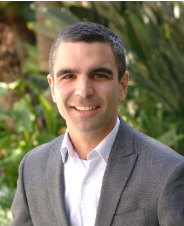Native Vote 2024.On Tuesday, Central Oregon voters overwhelmingly elected Anthony Broadman (D-Bend) to represent them in the Oregon State Senate. Broadman, who serves as a Bend City Councilor, Tribal court judge, and counsel to Tribal governments, will now bring his experience to the state legislature.

“We started this campaign a year ago based on a simple idea,” Broadman said. “If we show up in Salem and fight for working families and Central Oregon kids, everyone will be better off.”
Broadman’s campaign, which raised $1.1 million, saw hundreds of volunteers knocking on more than 44,000 doors. Cross-nominated by the Democratic and Independent parties, he won in both house districts that make up Senate District 27.
“Today is a reminder of the power of unity and cooperation. Our campaign brought together Republicans, Democrats, and Independents from across Redmond, Sisters, Bend, and Deschutes County. We all shared a common vision for how we could build a more fair, affordable, and safe future for our community. I'm going to bring this shared vision to Salem as I stand up for all 140,326 Oregonians in our district, regardless of who they voted for.”
Broadman has named efficient and effective government, public safety, housing, and economic development as his legislative priorities.
“The Central Oregon way is that we work together. Now, let’s get to work for the future of our state,” Broadman added.
More Stories Like This
Native News Weekly (August 25, 2024): D.C. BriefsUS Presidents in Their Own Words Concerning American Indians
Coming Up on Native Bidaské: Behind the Animation: Joey Clift Talks “Pow” and Native Storytelling
Two West Virginia Guardsmen Shot Near White House
Next on Native Bidaské: Chef Sean Sherman Talks “Turtle Island” and the Future of Indigenous Food
Help us tell the stories that could save Native languages and food traditions
At a critical moment for Indian Country, Native News Online is embarking on our most ambitious reporting project yet: "Cultivating Culture," a three-year investigation into two forces shaping Native community survival—food sovereignty and language revitalization.
The devastating impact of COVID-19 accelerated the loss of Native elders and with them, irreplaceable cultural knowledge. Yet across tribal communities, innovative leaders are fighting back, reclaiming traditional food systems and breathing new life into Native languages. These aren't just cultural preservation efforts—they're powerful pathways to community health, healing, and resilience.
Our dedicated reporting team will spend three years documenting these stories through on-the-ground reporting in 18 tribal communities, producing over 200 in-depth stories, 18 podcast episodes, and multimedia content that amplifies Indigenous voices. We'll show policymakers, funders, and allies how cultural restoration directly impacts physical and mental wellness while celebrating successful models of sovereignty and self-determination.
This isn't corporate media parachuting into Indian Country for a quick story. This is sustained, relationship-based journalism by Native reporters who understand these communities. It's "Warrior Journalism"—fearless reporting that serves the 5.5 million readers who depend on us for news that mainstream media often ignores.
We need your help right now. While we've secured partial funding, we're still $450,000 short of our three-year budget. Our immediate goal is $25,000 this month to keep this critical work moving forward—funding reporter salaries, travel to remote communities, photography, and the deep reporting these stories deserve.
Every dollar directly supports Indigenous journalists telling Indigenous stories. Whether it's $5 or $50, your contribution ensures these vital narratives of resilience, innovation, and hope don't disappear into silence.
 The stakes couldn't be higher. Native languages are being lost at an alarming rate. Food insecurity plagues many tribal communities. But solutions are emerging, and these stories need to be told.
The stakes couldn't be higher. Native languages are being lost at an alarming rate. Food insecurity plagues many tribal communities. But solutions are emerging, and these stories need to be told.
Support independent Native journalism. Fund the stories that matter.
Levi Rickert (Potawatomi), Editor & Publisher

